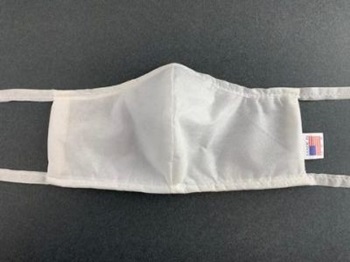US FDA Posts Update on Use of Face Coverings in Food Production and Retail Food Establishments
We have an important update for you on the Use of Face Coverings in Food Production and Retail Food Establishments.

Updated April 3rd, the US Center for Disease Control (CDC) now recommends: For workers on farms, and in food production, processing, and retail settings who do not typically wear masks as part of their jobs, consider the following if you choose to use a cloth face covering to slow the spread of COVID-19:
- Maintain face coverings in accordance with parameters in US FDA’s Model Food Code sections 4-801.11 Clean Linens and 4.802.11 Specifications.
- Launder reusable face coverings before each daily use.
NOTE: The cloth face coverings recommended by CDC are not surgical masks or N-95 respirators. Those are critical supplies that must continue to be reserved for healthcare workers and other medical first responders, as recommended by current CDC guidance.
Here is clarity on FDA’s recommendations regarding the use of masks, last evening the agency released an update on the use of face coverings in food production and retail food establishments. A link to the relevant FDA information is included below and states in part . . .
CDC recommends the use of simple cloth face coverings as a voluntary public health measure in public settings where other social distancing measures are difficult to maintain (e.g., grocery stores and pharmacies).
For workers on farms, and in food production, processing, and retail settings who do not typically wear masks as part of their jobs, consider the following if you choose to use a cloth face covering to slow the spread of COVID-19:
- Maintain face coverings in accordance with parameters in FDA’s Model Food Code sections 4-801.11 Clean Linens and 4.802.11 Specifications.
- Launder reusable face coverings before each daily use.
We hope this clarification will be helpful as you continue in your efforts to ensure the safety of your associates and your customers. You will note the advice is somewhat different from the anticipated commentary from FDA; it is, however, the most recent statement on the Agency’s thinking in this regard.
As always, if there are additional ways we at SQFI can be of assistance, please don’t hesitate to let us know.
The SQFI Team
Recent Blog Posts
Renee McVey is one of the first industry professionals to hold the Safe Quality Food Institute’s new Certified SQF Practitioner credential, which is administered by Exemplar Global.
The Safe Quality Food Institute announces ASI Food Safety's Stacey Brown and Redbarn Pet Products' Renee McVey as recipients of the 2025 SQF Excellence Awards.
I’m thrilled to share an update on our journey in developing SQF Code Edition 10—a process built on collaboration, transparency, and shared industry insights.




